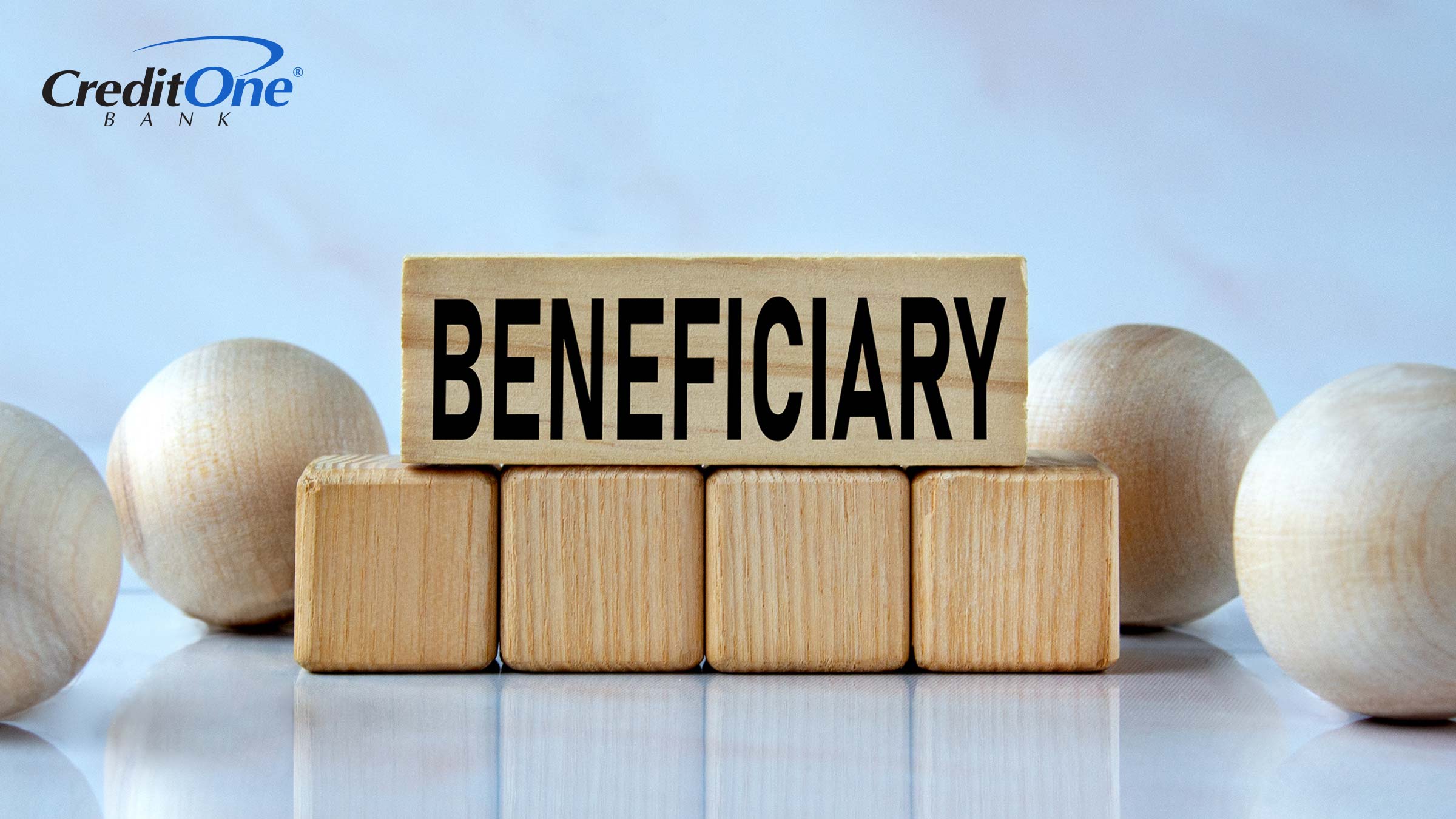
4 Benefits of Adding a Beneficiary to Your Account
January 02, 2024
Adding a beneficiary to your accounts might not be top of mind. But there can be many benefits to taking this simple step.

Introduction
Planning for the well-being of your family is essential. It’s nice to know that after you’re gone, your loved ones are taken care of, and in the way you wanted. One way to ensure that is to add a beneficiary to your deposit accounts, like jumbo high-yield savings accounts and certificates of deposit (CDs).
You might have thought beneficiaries were only for life insurance policies and retirement accounts. But it’s actually possible to do this for many types of financial products and investments.
Naming a beneficiary makes the process of handling assets much smoother later on. It also brings you security, peace of mind, and additional insurance. Here are the four main reasons you should consider adding a beneficiary to your accounts.
1. It Gives You Security and Peace of Mind
Most bank accounts and CDs are FDIC insured, which means they’re guaranteed by the government if the bank fails. But that deposit insurance is limited to $250,000 per account owner, per account owner category, per bank. So if you have a personal savings account with $400,000 in it, only $250,000 is covered. However, if that $400,000 is in a joint account, it’s insured for $250,000 per account owner — or up to $500,000 total — which covers your entire $400,000 balance.
If you have an individual savings account and a joint account at the same bank, they could be covered for up to $750,000 total between the two. The same goes if you have two savings accounts at two different banks. But if it’s one account ownership category at one bank, you’d only be covered for up to $250,000, even if you have multiple accounts — for example, three personal savings accounts.
Here’s where it gets interesting. If you name a beneficiary to that individual savings account with a $400,000 balance, you often receive additional FDIC insurance, just like if the account had a co-owner. So even if it’s your personal account, now it’s insured for your whole balance, up to $500,000 … just by taking a few minutes to name a beneficiary.
The financial institution will typically change your account type to “payable on death” (POD) when you do this. That’s a signal indicating that you have a beneficiary who should receive the funds if you die, no questions asked. And it’s a lot of additional security and peace of mind for doing almost nothing.
2. It’s Fast and Easy
You might think the process would be complicated, but no. It’s actually very simple, fast and easy to add a beneficiary. Often all you need is a name and a date of birth. Sometimes you’ll also need the beneficiary’s address, phone number and/or SSN. But it’s almost always as simple as typing in a few pieces of information — and you’ve completed the process.
That turns it into a POD account, sometimes called a Totten trust or transfer on death (TOD) account. However, the TOD label more often applies to securities like stocks, bonds and brokerage accounts. POD is the common name for a cash account with beneficiary.
3. It’s Flexible and Customizable
You don’t need to stick to what other people expect. You get to choose exactly who receives your assets when you name a beneficiary. Certain rules are in place if you die without naming your heirs in your will. And there’s usually a lengthy court process first.
But applying a beneficiary to your financial account means only that person inherits it, regardless of anything else. You can name your best friend, a distant relative, a charity, or anybody you like. It’s your money, and you get to choose. Just make sure to revise the name if you happen to change your mind.
4. It Prevents Family Disputes
Naming a beneficiary allows you and your family to bypass the probate process, which is normally what happens if you die — and it can become super-complicated if you haven’t completed your will or named heirs for all your assets. If you did complete a will, the probate process will involve the court validating the document and contacting your chosen executor. Then, under court supervision, the executor distributes your assets accordingly.
If you don’t have a will, a court has to take over the entire proceedings, and they will typically assign everything according to state laws. In most cases, that means dividing the property and assets between your surviving spouse and children. Probate can sometimes be skipped if you don’t have enough assets for it to be worthwhile, but otherwise it’s usually required.
However, with beneficiaries named on all your bank accounts and investments, the probate process is unnecessary. Additionally, account beneficiaries override your will. So if your will says all your assets go to your daughter, but you’ve named your cousin as the beneficiary on your CD, then the assets in the CD go to your cousin instead of your daughter. If you really wanted everything to go to your daughter, naming her as the beneficiary on your bank account in addition to naming her in your will would make sure she definitely got the account assets, without dispute.
There are always going to be disagreements when it comes to dividing up assets. But naming a beneficiary makes it clear who you want to get that specific sum of money, and nobody can argue it after the fact.
Bottom Line
All in all, adding a beneficiary to your account protects yourself and your loved ones. It only takes a few minutes, and it means your beneficiaries get their money right away instead of going through a lengthy probate process. And it increases your security by doubling your FDIC insurance coverage amount from a maximum of $250,000 to up to $500,000.
But everything in life has pros and cons, right? Well, in this case, there aren’t many drawbacks to adding a beneficiary to your account. The only caveat is that naming a beneficiary automatically gives all the money in the account to that person or organization right away, rather than letting you dictate how or when they receive it. So the recipient might end up spending it all immediately, and will likely have to pay taxes on the lump sum as well.
If you’d rather distribute the funds over time, you should spell out that condition in your will instead of naming an account beneficiary. And if you want the account to remain open after your death, you could consider adding that person as a joint account holder instead.
In most other cases, having a beneficiary is a great idea. If you have a savings account or certificate of deposit with Credit One Bank, you can add a beneficiary just by logging into your account.



